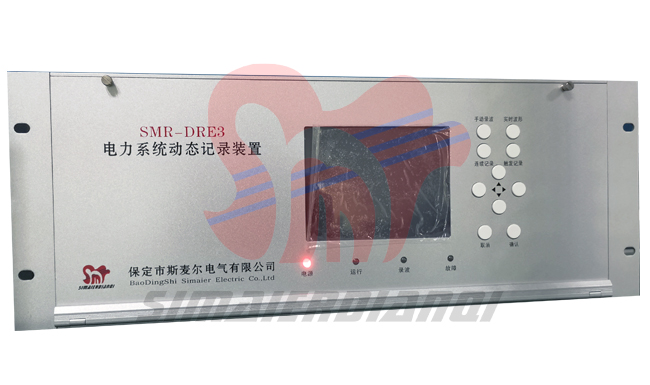Fault recorder is an automatic recording device which is used to monitor the operation of power system all year round. It can record the whole process change of system current, voltage and output due to short circuit fault, system oscillation, frequency collapse, voltage collapse and other major disturbances, such as active power, reactive power and system frequency. It is mainly the same as detecting the action behavior of relay protection and safety automatic device, understanding the change law of electric quantity in transient process, checking the correctness of calculation program and model parameters of power system. The fault recording device with excellent performance plays an important role in ensuring the safe and reliable operation of power system.
In our daily life, it is often necessary to analyze the fault of power system through fault recording graph, whether the action behavior of the protection device is correct, whether the secondary circuit wiring is correct, whether the polarity of CT and Pt is correct, etc.
In power system, single-phase ground fault often occurs. How to judge single-phase ground fault is to judge according to its fault nature:
The first phase current increases, the voltage of the first phase decreases, and the zero sequence current and zero sequence voltage appear;
The current increases and the voltage decreases to the same phase, the zero sequence current phase is in the same direction as the fault phase current, and the zero sequence voltage and the fault phase voltage are reversed
In case of metal grounding fault, the fault phase voltage is about 80 degrees ahead of the fault phase current, the zero sequence current is about 100 degrees ahead of the zero sequence voltage, and the negative sequence current is about 100 degrees ahead of the negative sequence voltage;
If there are more neutral points in the power system, the zero sequence impedance is relatively small and the single-phase short-circuit current is larger;
If it is a neutral point ungrounded system, the zero sequence impedance of the system is almost infinite when the capacitance current is ignored, and the phase current of single-phase ground fault is zero;
Generally, the two non fault phase currents at the protection installation will not be zero, their amplitude is equal, their phase may be opposite to the phase of fault phase current, or the phase opposite to the current of fault phase. If the distribution coefficient of each sequence current is equal, the current of non fault phase is zero.
For single-phase ground fault recording characteristics:
The first phase current increases, the voltage of the first phase decreases, and the zero sequence current and zero sequence voltage appear. According to this condition, it can be determined that the system has a single-phase short circuit to ground.
The current increases and the voltage decreases to the same phase. If this condition is met, it can be determined that the voltage and current phase are not connected wrong
Zero sequence current phase and fault phase current are in the same direction, and zero sequence voltage and fault phase voltage are reverse
The fault phase voltage is about 80 degrees ahead of the fault phase current, and the zero sequence current is about 110 degrees ahead of the zero sequence voltage.



